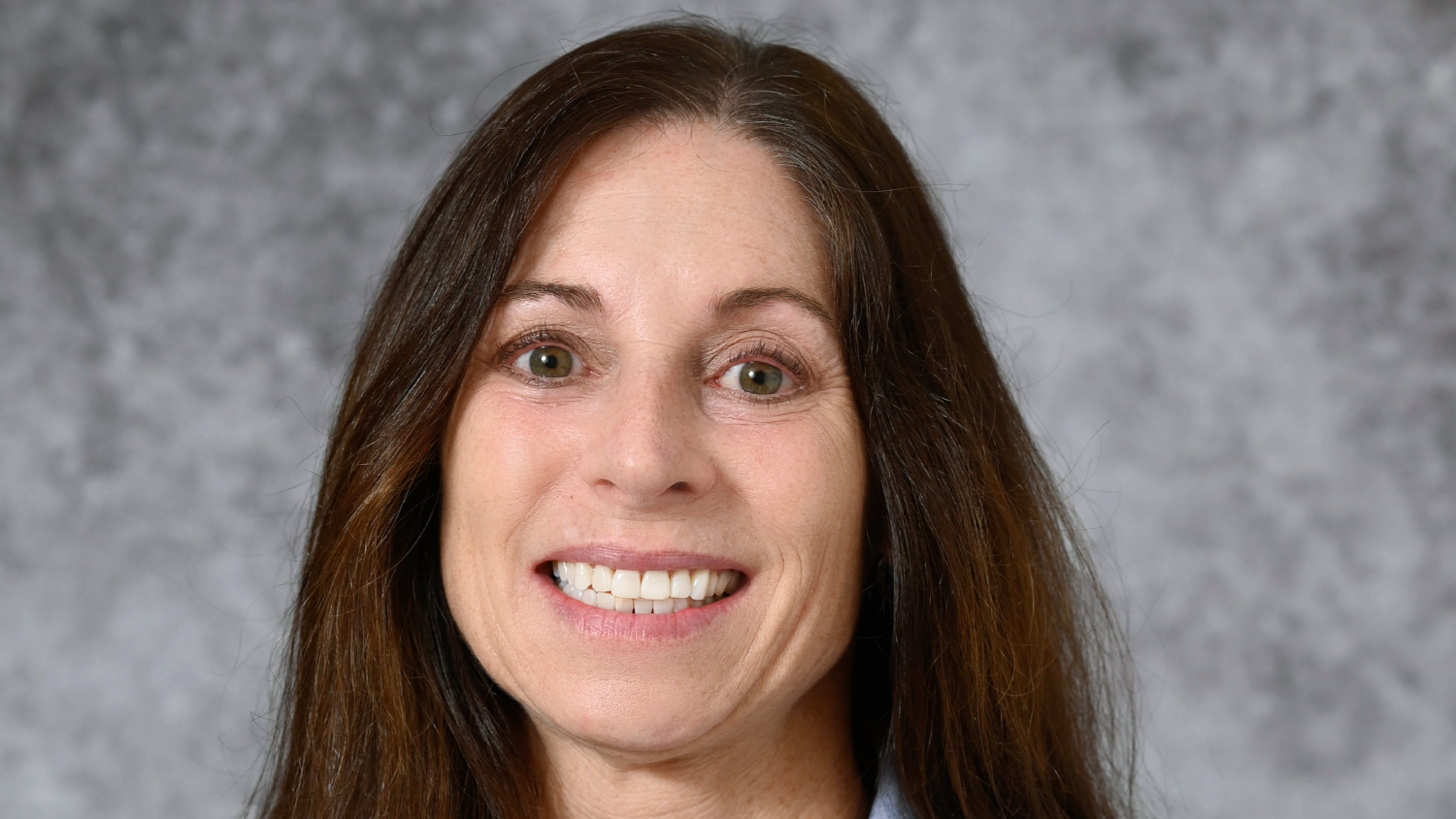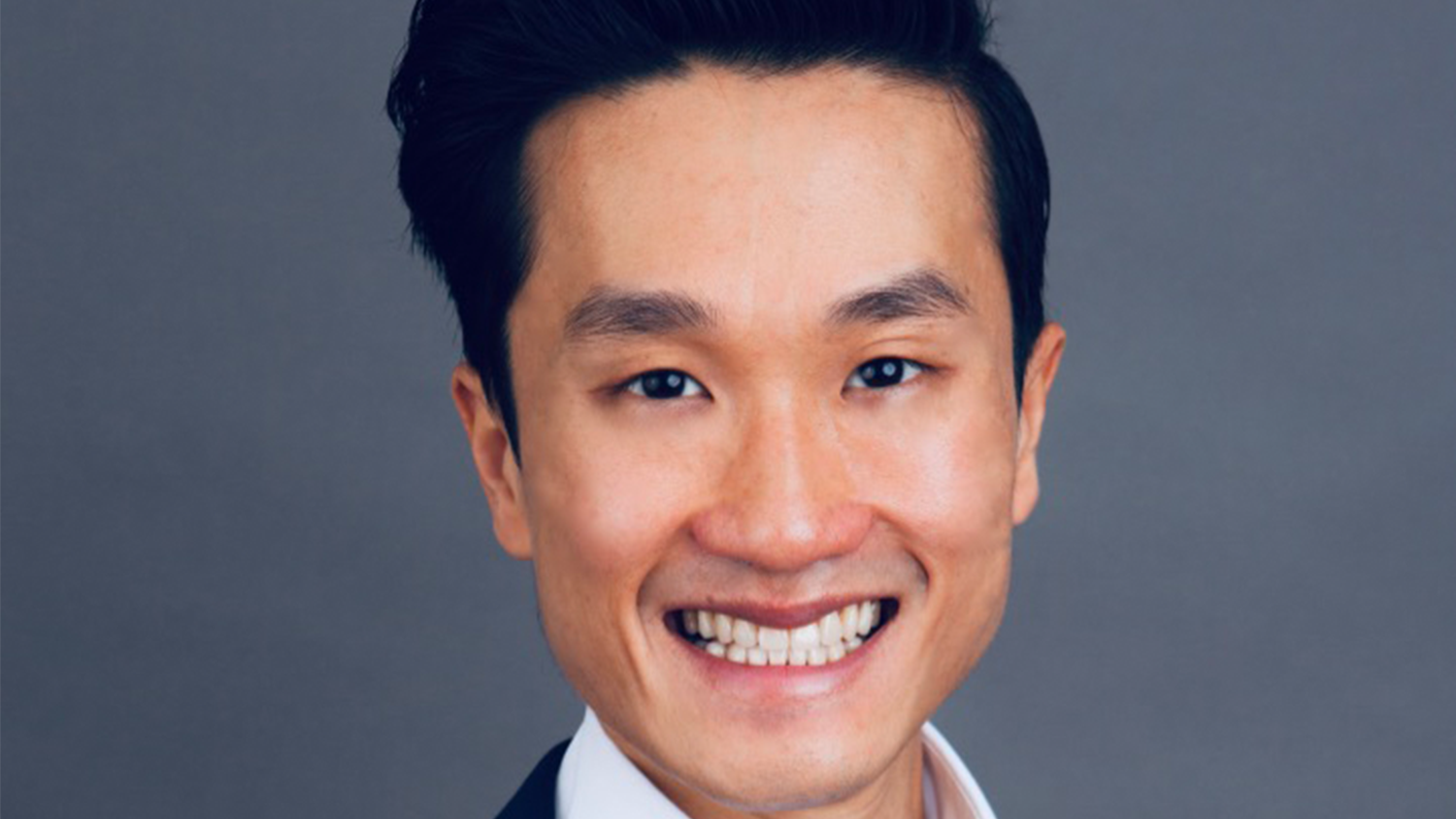More Than Two Dozen College of Education Scholars Present at NC State’s Inaugural Equity Research Symposium
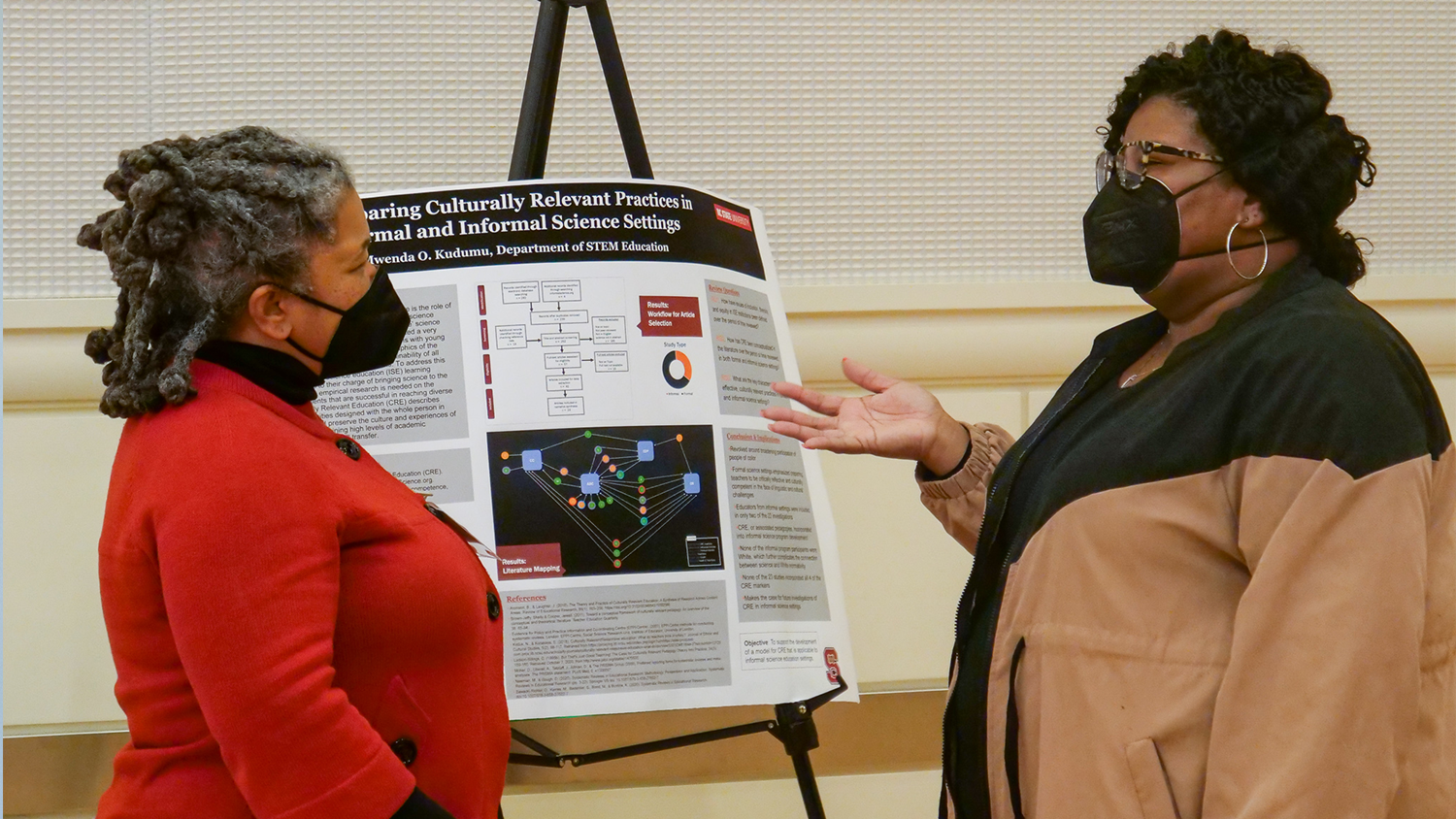
Researchers from across NC State University— including more than two dozen College of Education faculty, researchers and doctoral students—came together on Feb. 8 to share and catalyze cutting-edge, equity-focused and equity-relevant research during the university’s first-ever Equity Research Symposium.
Sponsored by the deans of all 10 colleges at NC State, as well as the Graduate School, and hosted in collaboration with the Division of Academic and Student Affairs, the Office for Institutional Equity and Diversity, the Office of Research and Innovation, and the Research Leadership Academy, the event featured panel presentations, lightning sessions, poster presentations and roundtable discussions from across the university.
“The symposium is an opportunity to learn about and build upon the work of researchers across campus. This can lead to future partnerships and collaborations to support interdisciplinary research to further our understanding of diversity, equity and inclusion,” said Karen Hollebrands, associate dean for research and innovation in the NC State College of Education and a co-organizer of the event.
Professor and Senior Advisor for Advancing Diversity, Equity and Inclusion Joy Gaston Gayles helped kick off the event as a member of the opening Plenary Panel, which focused on framing equity.
Gayles, who also serves as the current president of the Association for the Study of Higher Education, discussed how researchers must consider context and develop an understanding of the systems and structures that create the issues that scholars try to address. If we are not careful in the decisions that we make as researchers, we can inadvertently perpetuate the problems we are trying to solve, she said.
Additionally, she said researchers must operate from a place of equity—which means considering what different groups need and meeting those needs—as opposed to a place of equality—which means giving everybody the same thing regardless of their unique needs and circumstances.
“We can find ourselves in dangerous territory when the work that we do does not center equity. We can really do things that are harmful and damaging to people,” she said. “Dehumanization occurs when we don’t take equitable approaches to research and inquiry.”
Professor Mary Ann Danowitz, who served as dean of the College of Education from 2016 to October 2021, participated in the closing panel presentation entitled “Imagining an Interdisciplinary Equity Collaborative,” and Interim Dean Paola Sztajn delivered closing remarks.
“I hope today’s event is just the beginning of our interdisciplinary efforts around equity research and becomes a recurring event, generating other efforts based on our emerging collective work around the issue of equity in research,” Sztajn said.
Below, you can view a list of panels and presentations delivered during the Equity Research Symposium by faculty, researchers and students with the College of Education, including the Belk Center for Community College Leadership and Research and the Friday Institute for Educational Innovation.
“Advocating for Chances, Not Chains: Creating Resistance to the School-to-prison Pipeline in Wake County”
Presenter: Devan MacKenzie, doctoral student in the Ph.D. in Teacher Education and Learning Sciences’ Educational Equity program area of study
This poster presentation focused on the most recent discipline trends in the Wake County Public School System and considers strategies for improving school discipline using an equity framework.
The research stems from MacKenzie’s interest in the connection between exclusionary discipline practices and the school-to-prison pipeline, as students who receive suspensions and expulsions are more likely to become incarcerated adults. Her research also examines the disproportionate impact of exclusionary discipline practices on Black males and students with disabilities.
“Confronting the school-to-prison pipeline means confronting the policies, biases and circumstances that lead to inequitable discipline practices in the first place. This is a way of addressing student needs and creating a positive, inclusive environment,” MacKenzie said. “It’s also important to remember that schools are ultimately meant to benefit students and families. This cannot happen if students are missing school due to discipline.”
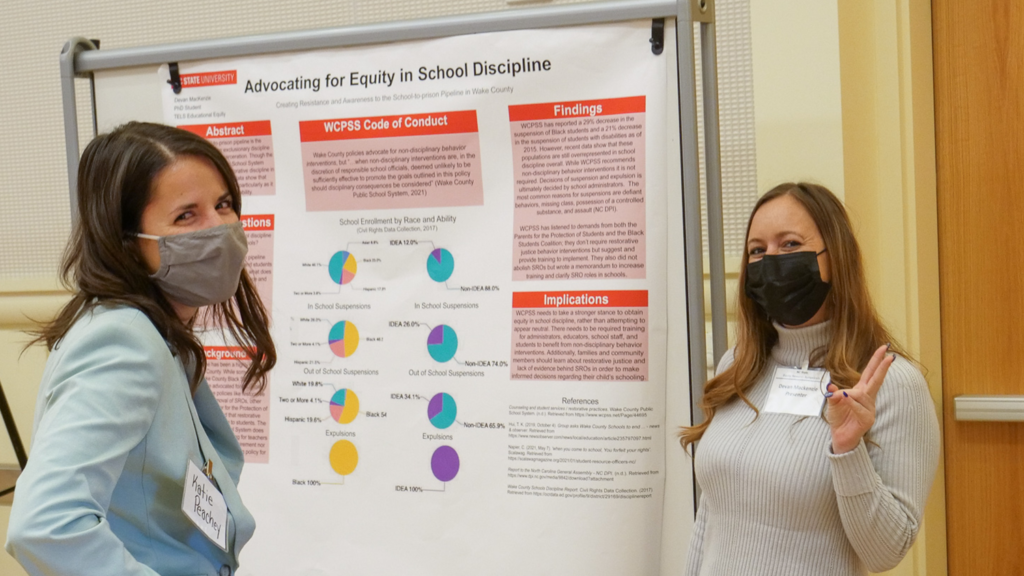
“Belonging in Mathematics Classrooms: Using the ICUCARE Equity Framework to Extend the Standards for Mathematical Practice”
Presenter: Martia Williams ’22, undergraduate student in Mathematics Education
This poster presentation centered around belonging in mathematics classrooms and how the culture of these spaces often perpetuate the idea that only certain people can be great at math, while often excluding women and people of color.
Williams’ research argues that incorporating practices from culturally responsive teaching frameworks is necessary to ensure that students feel as though they belong in their math classrooms. This, along with the standards for mathematical practice, she said, will allow students to be independent and thoughtful mathematics learners.
“It is not enough as a math teacher or professor to just teach the content. Educators at every level have to make sure that their students feel seen in their math classes in order to be successful mathematicians,” Williams said. “This idea should be their ultimate goal, even if that requires some extra work.”
“Broadening Participation in Informal Science Education: A Case Study of North Carolina Science Centers”
Presenter: Lynn Chesnut, doctoral student in the Ph.D. in Learning and Teaching in STEM Science Education program area of study
This poster presentation focused on the current inclusion, diversity and equity access (IDEA) efforts in science museums.
Chesnut shared survey data as she addressed the critical need to broaden participation for science museums.
“Science museums offer important science learning opportunities, but they are not available to all,” Chesnut said. “Strategies must address the reasons underrepresented people don’t go to museums. Museums that cater only to current visitors will become obsolete if they don’t respond to changing demographics in the U.S.”
“Centering Participant Voices in Research”
Presenters: Jennifer Mann, doctoral student in the Ph.D. in Teacher Education and Learning Sciences’ Literacy and English Language Arts Education program area of study; Lonnie Manns, doctoral student in the Ph.D. in Teacher Education and Learning Sciences’ Educational Equity program area of study; Katie Peachey, doctoral student in the Ph.D. in Teacher Education and Learning Sciences’ Literacy and English Language Arts Education program area of study
This panel explored ways to center participant voices through the research process, beginning with research design and carrying through to publication and beyond.
The discussion specifically shared ideas regarding how to conduct and disseminate research that honors historically marginalized communities and allows others to see the assets that they possess.
“By centering participant voices and their funds of knowledge, we can use our position and power to provide more spaces for other voices to be heard,” Mann said.
“Centering Trans* Voices in the Classroom and Beyond”
Presenter: Garrett Goodwin, doctoral student in the Ph.D. in Educational Leadership, Policy, and Human Development’s Higher Education Opportunity, Equity, and Justice program area of study.
This poster presentation covered topics related to how the voices of trans* students can be centered in the work done on college campuses.
The aim of the presentation was to bring about new frameworks and models for how more inclusive institutions can be built and to illuminate the way policies can often ignore non-binary genders.
“I hope that attendees take with them an understanding of the structural barriers that trans* students face throughout the college application process and during their times on campuses,” Goodwin said. “I encourage attendees to take this information and critically engage with the work they do with students.”
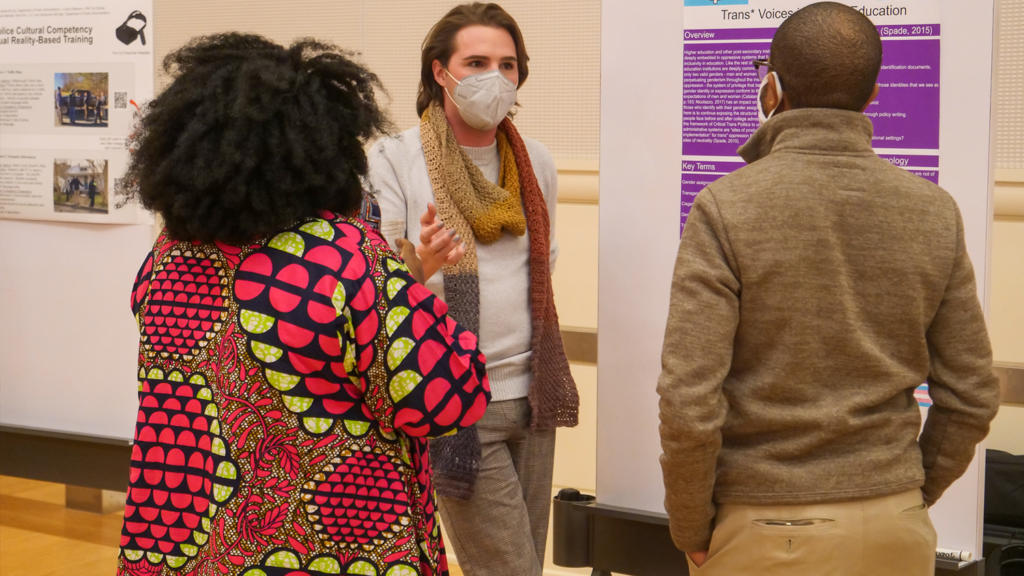
“Comparing Culturally Relevant Practices in Formal and Informal Science Settings”
Presenter: Mwenda Kudumu, doctoral student in the Ph.D. in Learning and Teaching in STEM Science Education program area of study
This poster presentation described a systematic review of academic literature that connects culturally relevant practices to learning science in formal and informal settings.
The academic review supports the development of a culturally relevant model that is applicable to informal science settings. The presentation takes a closer look at the benefits of culturally responsive education in science domains while illuminating gaps in existing research and offering recommendations for future investigations of the practice in informal science settings.
“After viewing this poster, conference attendees will be able to describe the process of a systematic literature review, argue for the importance of culturally relevant education in informal science institutions and identify several key components of culturally inclusive, informal STEM programs,” Kudumu said.
“Equity by Design: Building a Talent Pipeline Program for Emergent Program Evaluators and Educational Researchers”
Presenters: Callie Edwards, Associate Director of Program Evaluation and Education Research at the Friday Institute; Kevin Winn, Friday Institute Research Assistant
This round table discussed the Program Evaluation and Education Research (PEER) Internship for Undergraduate Students, a new on-campus, evidence-based program that introduces undergraduate students to educational evaluation and research.
The PEER Group internship program partners with the Federal Work Study program to provide paid immersive professional development for students from socioeconomically disadvantaged backgrounds. Via the internship, undergraduate students receive ongoing training in educational research and evaluation techniques while contributing to PEER Group projects. This program serves as a promising model for designing equitable and inclusive outreach programs to prepare emergent researchers and evaluators.
“It’s important to have a conversation about practical ways to center equity,” Edwards and Winn said. “Equity can be a buzzword sometimes. People like to say it, but it can be difficult to operationalize how it looks in practice. Fostering a round table like this can help people think about those everyday strategies that keep equity front and center. How can we think about equitable strategies that introduce a new generation of researchers and evaluators from a variety of backgrounds and perspectives to the field of education?”
“How Can Assessment Be an Equity Mechanism Instead of a Gatekeeper in Engineering Education?”
Presenter: Tamecia Jones, Assistant Professor of STEM Education
This roundtable discussion outlined ways that assessment can serve as a gatekeeper mechanism and how different strategies can shift towards an equity mechanism instead.
“I hope that attendees will be motivated to be reflective in how they plan and conduct assessment, particularly in engineering education,” Jones said.
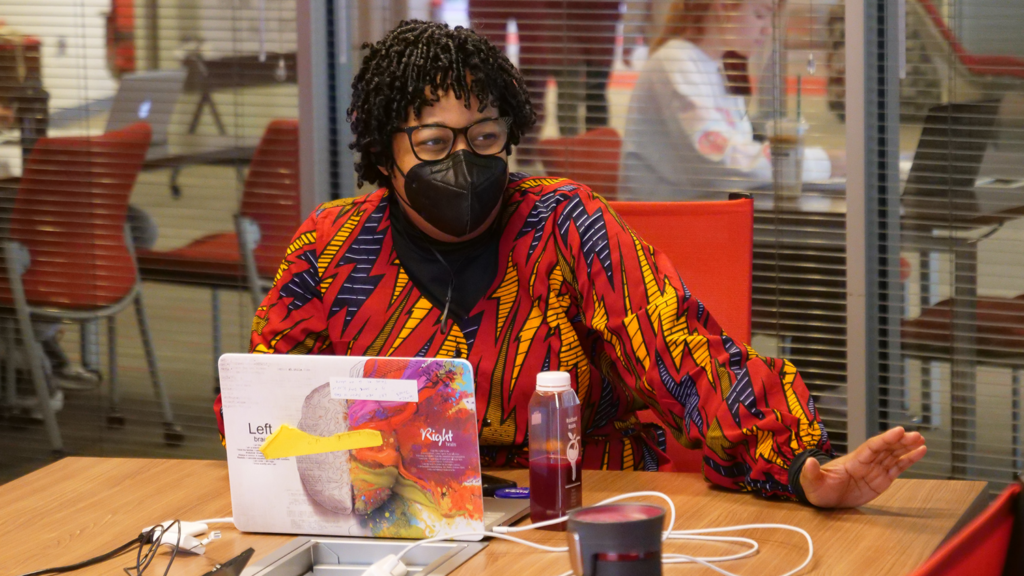
“Implementing Equitable Research-Practice Partnerships with Rural School Districts”
Presenters: Callie Edwards, Associate Director of Program Evaluation and Education Research at the Friday Institute; LaTricia Townsend, Director of federal program monitoring and support at the North Carolina Department of Public Instruction and former director of evaluation programs for the Friday Institute; Tameshia Baldwin, Associate Teaching Professor in the College of Engineering
This round table discussion discussed how the Developing STEM Identity in Rural Audiences through Community-based Engineering Design (DeSIRE) project has adapted to center equity and meet the diverse needs of their school partners during the pandemic. Session participants gained actionable insights for implementing equitable research-practice partnerships in rural communities.
DeSIRE is a partnership of NC State’s College of Engineering, the Friday Institute, the NC Mathematics and Science Education Network Pre-College Program (MSEN), Edgecombe County Public Schools and the local advanced manufacturing industry. The goal of this project is to create community-based engineering design experiences for underserved middle school students from rural North Carolina in order to improve cognitive and non-cognitive outcomes and ultimately lead to increased participation in STEM fields.
“Rural students often don’t have the same exposure to education and career opportunities as those in urban environments,” the project team said. “The NSF-funded DeSIRE project provides access to STEM content for historically underrepresented rural students and connects them to local advanced manufacturing industry partners. This program is so exciting because it enables students to envision themselves as future STEM professionals in their community.”
“Is there Equity in Global Education Learning?”
Presenter: Nada Wafa, doctoral student in the Ph.D. in Teacher Education and Learning Sciences’ Social Studies Education program area of study
This panel focuses on the idea of equity in the field of global education, as well as the practical and future directions for the field.
Wafa’s research focuses on the ways in which global education takes place and how a gap in global education exists in public schools when compared with private and charter schools or international sectors. She believes teachers’ knowledge of the College, Career and Civic Life (C3) Framework and learning approaches that infuse global education could provide students with a better understanding of cultural diversity, as well as local and global interconnectedness.
“I think some of the biggest challenges are thinking about the ways teachers can help students navigate the tensions that are at the center of citizenship. I also think that preparing teachers to have a classroom that engages students in deliberations and discussions that are respectful and inclusive may be another challenge,” Wafa said. “As teachers begin to develop inquiries, they become the writers of the curriculum, and they play a significant role in engaging students through questions that matter most to their lived experiences.”
“Principal Preparation for Equity: Does it matter in leadership practice?”
Presenters: Mario Jackson, doctoral student in the Ph.D. in Educational Leadership, Policy and Human Development’s Educational Evaluation and Policy Analysis program area of study; Lisa Bass, Associate Professor of Educational Leadership and Policy Studies; Kirsten Hoeflaken, Knowledge Management and Assessment Program Associate and doctoral student in the Ph.D. in Educational Leadership, Policy and Human Development’s Educational Evaluation and Policy Analysis program area of study; Jose Picart, Professor of Counselor Education and Friday Institute for Educational Innovation Deputy Director; Stella Jackman-Ryan, doctoral student in the Ph.D. in Teacher Education and Learning Sciences’ Educational Psychology program area of study
This panel presentation discussed the efforts of NC State’s award-winning NELA principal preparation program to train equity-oriented school leaders to serve in low-performing schools.
An examination of the program’s equity efforts was complemented by an analysis of the way five NELA graduates who are currently serving as principals in North Carolina are challenging the status quo and advancing equity in their endeavors.
“The participants in our study attributed their commitment to challenging systems of oppression and inequities to the equity-focused training they received at NC State,” Jackson said. “As embedded in the program structure of NELA, principal candidates are encouraged to interrogate their identities, privileges and biases to understand how these might inadvertently contribute to the reinforcement of racist practices and policies in leadership.”
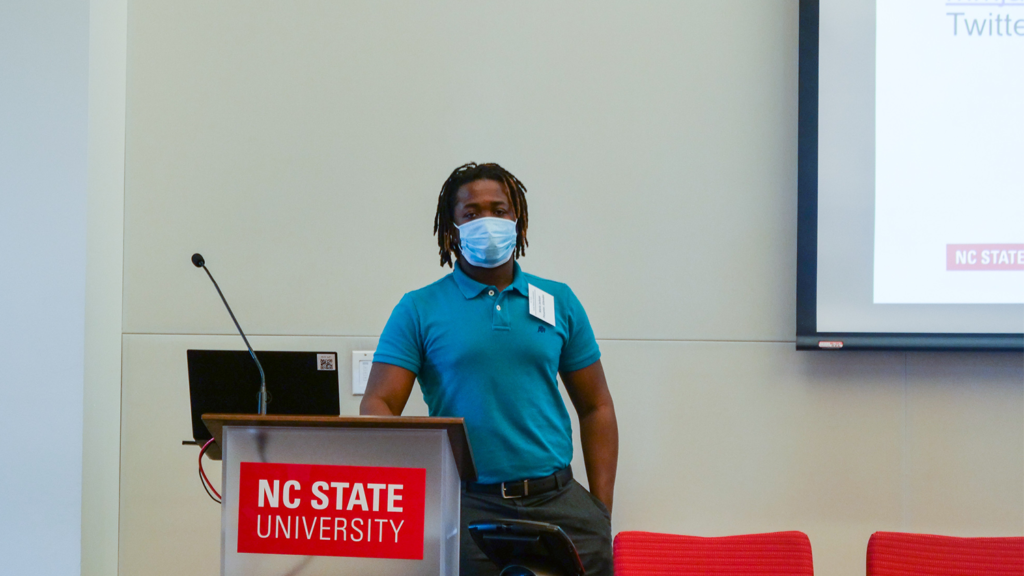
“Redefining Autism Acceptance Across College Campuses: From Research to Reality”
Presenter: Brett Ranon Nachman, postdoctoral research scholar at the Belk Center for Community College Leadership and Research
This lightning presentation focused on how higher education practitioners can create more equitable academic experiences for autistic college students.
Nachman presented findings from his research on autism in higher education that he believes will enable educators, administrators and scholars to reinterpret the messaging they use related to autism, recognize the complexity of autistic individuals’ identities, identify transferable teaching skills and employ more inclusive research design processes.
“Disseminating autism awareness is a foundational step toward reducing biases and false stereotypes that people may have toward autism, whereas redefining autism acceptance involves adopting more of a strengths-based philosophy in how we address, work with and learn from autistic people on our college campuses,” Nachman said. “When we create the space to open our minds, value autistic perspectives and determine how approaches that support autistic learners may benefit everyone, we begin to reenvision how our campuses may develop more opportunities for belongingness and academic success.”
“Teacher SSPACE: Strategies for Supporting Parent Advocacy, Communication, and Empowerment among Historically Marginalized Families Raising Autistic Youth”
Presenters: Jamie Pearson, Assistant Professor of Special Education; Lonnie Manns, doctoral student in the Ph.D. in Teacher Education and Learning Sciences’ Educational Equity program area of study; Devoshia Mason Martin, doctoral student in the Ph.D. in Teacher Education and Learning Sciences’ Educational Equity program area of study
This poster presentation highlighted the need for and benefits of school-community partnerships to support historically marginalized families of autistic youth.
Stemming from Pearson’s FACES project, which promotes advocacy and empowerment among Black families of children with autism, the presentation shared that when parents advocate and develop positive partnerships with educators, children with autism often experience improvements in educational outcomes and in their overall quality of life.
“We want to expand FACES by partnering with teachers to strengthen their parent partnership strategies,” Martin said. “We hope that by empowering both families and educators, we will be able to improve social, behavioral and academic outcomes for historically marginalized autistic youth.”
“The Stories We Tell: Math, Race, Bias, and Opportunity”
Presenters: Valerie Faulkner, Teaching Professor of Teacher Education and Learning Sciences; Cyndi Edgington, Assistant Teaching Professor of STEM Education; Jessica Hunt, Associate Professor of Mathematics Education and Special Education
This panel explored the interface of cultural beliefs about intelligence and educational practices with a consideration for how cultural ideas about ranking and hierarchy impact understandings about student mathematical abilities.
Through the presentation of three studies, the group explored the impact of hierarchical assumptions in different school contexts. These include understanding how African American students come to be “tracked” and how general education and special education teachers interpret assessment information.
“We hope attendees will have the space to consider how cultural beliefs impact cultural ideas about education, the purpose of assessment and the nature of student learning,” the group said.
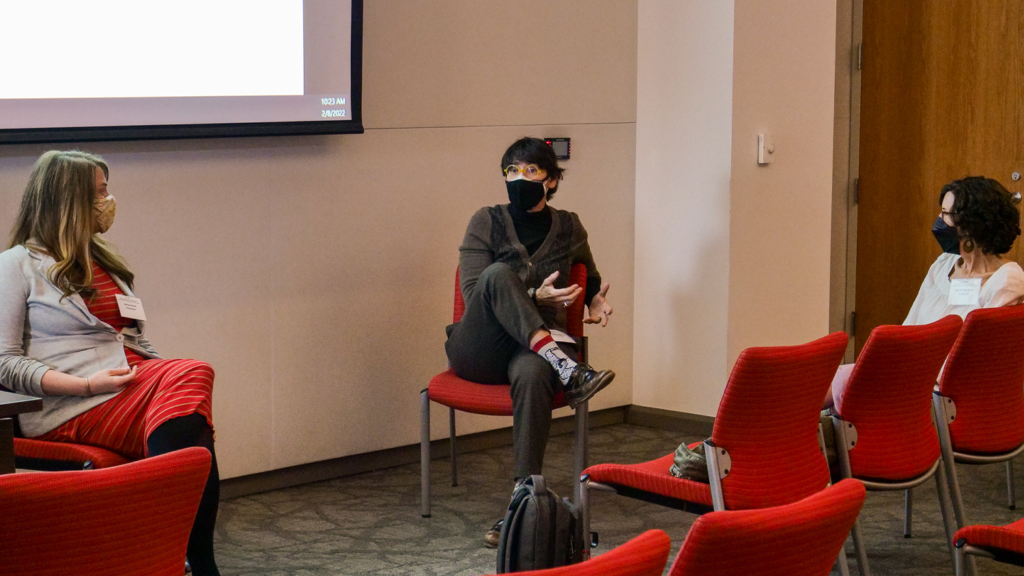
“Toward Equitable Community- University Partnerships: Faculty Engagement with Raleigh’s Black Communities”
Presenter: Marc Grimmett, Professor of Counselor Education and Director of the Community Counseling, Education, and Research Center (CCERC)
This round table discussion focused on university-community partnerships, including the Community Counseling, Education, and Research Center (CCERC).
Grimmett’s contributions to the discussion focused on how CCERC uses the Love Ethic model to provide counseling services to those who would not otherwise have access because of financial or other barriers. He also discussed the importance of those engaged in university-community partnerships having an understanding of the ways in which oppression contributes to the community problems they are trying to address through their work.
“Psychology generally has a tendency to look at mental health issues internally, within a person. In community psychology and counselor education, however, we understand oppression is a mental health problem. If people didn’t have to deal with racism, sexism, or poverty, then they’d be pretty healthy for the most part,” he said. “Before doing any work, you have to understand how oppression contributes to the problem. If you don’t factor that in, you’re not doing anything.”
“Understanding Community College STEM Transfer Students by Exploring Gender and Racial Experiences: Momentum and Collision”
Presenters: Lancelot Gooden, doctoral student in the Community College Leadership program; James Bartlett, Associate Professor of Educational Leadership, Policy and Human Development
This lightning session addressed the findings and implications of a research study designed to develop a better understanding of community college STEM transfer success, with a focus on gender and racial experiences during students’ pre- and post-transfer journeys.
The first research study on Goodnight Scholars pursuing undergraduate STEM degrees at NC State, the findings show that even when financial barriers are mitigated for transfer students who receive scholarships, students need additional support to help increase their capital to better navigate the college environment.
“An asset-based approach to research addressing community college student success, particularly STEM transfer success, underscores their unique skills, knowledge and abilities that shape their experiences and adds rich context to narrowing equity gaps in STEM baccalaureate degree attainment,” Gooden said.
Heather Bronson contributed to this piece.
- Categories:
